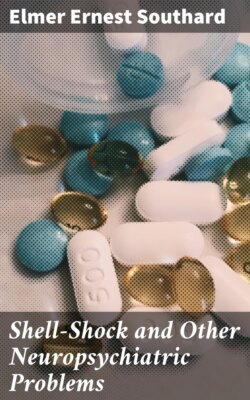Читать книгу Shell-Shock and Other Neuropsychiatric Problems - Elmer Ernest Southard - Страница 93
На сайте Литреса книга снята с продажи.
ОглавлениеPathological intoxication: criminal prosecution stopped.
Case 87. (Loewy, 1915.)
An orderly, in private life a teacher, one day about noon-time, when going on duty, called the commanding officer to account because he (the orderly) had had to wait. He said he had been ordered to come at two o’clock and it was already long thereafter! He was severely reprimanded but addressed a number of the officers present with questions having no relation to military service. In fact, he seemed to have forgotten entirely that he was on military service.
This was the more remarkable as the teacher-orderly had many times distinguished himself upon dangerous patrol expeditions and in critical situations, winning the confidence of his superiors and the likelihood of promotion to corporal. He had been a discreet, earnest, and clever soldier.
Loewy observed him during this affair and noticed that he did not by language or movement suggest intoxication or hilarity but merely a certain excitement. He was entirely oriented for time, place and person, and his outward behavior was correct enough except for his military rank.
Sent to his quarters near by, he gave the impression to his immediate superior officer of deep drunkenness. He murmured something and soon fell into a deep sleep. After waking, he had an almost complete amnesia, knowing only that something disagreeable had transpired. He remembered that he had been offered several little glasses of cognac brandy by a comrade, and that he had drained them off quickly before going on duty. He said that he had never drunk cognac before, and in fact had drunk nothing for a long time.
The diagnosis of pathological intoxication was made, and the soldier was thereby cleared of his dangerous situation; a criminal prosecution was not instituted. He thereafter behaved with entire sobriety and modesty, and he achieved his corporalcy and later became file leader.
